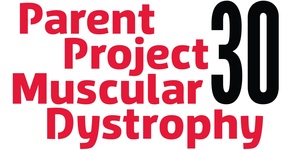HACKENSACK, N.J., Dec. 18, 2019 /PRNewswire/ -- Parent Project Muscular Dystrophy (PPMD), a nonprofit organization leading the fight to end Duchenne muscular dystrophy (Duchenne), announced that Renzhi Han, an associate professor at The Ohio State University College of Medicine, will receive a $465,000 grant to study the potential use of in vivo base editing to restore full-length dystrophin protein production in the heart, as well as skeletal muscle. A result of PPMD's Request for Applications earlier this year and part of the organization's Cardiac Initiative, funding for this grant was a result of PPMD's 2018 holiday campaign emphasizing the importance of cardiac research and heart health in Duchenne.
Duchenne is the most common fatal genetic disorder diagnosed in childhood, affecting approximately one in 5,000 live male births. Duchenne is caused by a mutation in the dystrophin gene. For people with Duchenne, cardiac disease is an area of great concern. The absence of dystrophin in the heart contributes to a progressive deterioration of cardiac muscle and eventual cardiomyopathy.
Therefore, one potential strategy for ensuring protection of the heart muscle may come from restoring full length dystrophin protein production in the heart. The work Han and his team will undertake investigates newly developed gene editing technologies to facilitate such a dystrophin restoration strategy.
A number of current gene editing strategies involving CRISPR/Cas9 utilize the Cas9 protein to cut the strands of DNA, which cause the DNA to repair itself and modify the gene of interest. While this type of repair can be useful for splicing DNA and editing a gene to alter its function, there are some concerns about off-target cutting, where other regions of DNA are incorrectly cut by the Cas9 protein. The technology Han is utilizing doesn't create this cut and repair strategy. Instead, the CRISPR/Cas9 is modified to become a 'base editor' that can target and replace individual nucleotides of interest. This more precise strategy may allow for less off-target effects, thereby increasing safety. Rather than modifying the gene to make a truncated protein, this 'base editor' approach could allow for expression of a full length dystrophin protein by targeting and correcting specific mutations in the DMD gene and thereby address the root cause of the disease, the absence of dystrophin.
Abby Bronson, PPMD's Senior Vice President of Research Strategy, is optimistic about Han's innovative approach to restore cardiac function: "This proposed work could greatly impact the function of the heart in Duchenne. In order to properly evaluate the effect of this gene editing strategy on the heart, preclinical models need to be studied. Unfortunately, many of the pre-clinical models available to scientists working on Duchenne do not accurately reflect the pathology of disease in individuals with Duchenne. To better understand the disease progression and response to gene editing, Han and his collaborators have developed a new pre-clinical model that more accurately mimics cardiac disease progression in Duchenne. Importantly, the generation of this new model will not just benefit this work, but future cardiac drug development in Duchenne."
"I'm very grateful for PPMD for generously funding our work. Progression to cardiac dysfunction is a life-threatening concern in Duchenne patients. Development of effective strategies to combat cardiac disease in Duchenne is in urgent need and could be life saving," said Han, a researcher in Ohio State's Department of Surgery. "We're excited to explore the therapeutic potential of this new base editor approach in rescuing dystrophin expression and cardiac function."
For the past several years, PPMD has heavily invested in the pursuit of optimal care, interventions, and research pertaining to the management and prevention of cardiomyopathy. PPMD is grateful to the Duchenne community for supporting the expansion of the Cardiac Initiative, so that critical projects like Han's study can continue.
To learn more about PPMD's Cardiac Initiative, click here.
About Parent Project Muscular Dystrophy
Duchenne is a fatal genetic disorder that slowly robs people of their muscle strength. Parent Project Muscular Dystrophy (PPMD) is the largest most comprehensive nonprofit organization in the United States focused on finding a cure for Duchenne—our mission is to end Duchenne.
We demand optimal care standards and strive to ensure every family has access to expert healthcare providers, cutting edge treatments, and a community of support. We invest deeply in treatments for this generation of Duchenne patients and in research that will benefit future generations. Our advocacy efforts have secured hundreds of millions of dollars in funding and won two FDA approvals.
Everything we do—and everything we have done since our founding in 1994—helps those with Duchenne live longer, stronger lives. We will not rest until we end Duchenne for every single person affected by the disease. Join our fight against Duchenne at EndDuchenne.org and follow PPMD on Facebook, Twitter, and YouTube.
SOURCE Parent Project Muscular Dystrophy (PPMD)

Related Links
WANT YOUR COMPANY'S NEWS FEATURED ON PRNEWSWIRE.COM?
Newsrooms &
Influencers
Digital Media
Outlets
Journalists
Opted In






Share this article